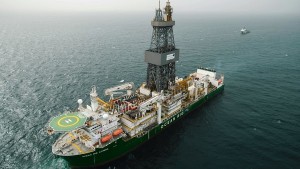Financial Times
Richard Milne in Oslo and Kiran Stacey in London
Norway’s $835bn oil fund has excluded Cairn Energy of the UK and Kosmos Energy of the US from its portfolio over their continuing investment in oil exploration off the coast of Western Sahara.
The world’s largest sovereign wealth fund was one of the biggest investors in Cairn with a 2.85 per cent stake at the end of last year. It had a smaller 0.8 per cent stake in Kosmos, which is based in Dallas and has exploration licences in several African countries.
The oil fund decided to ban the companies from its investment portfolio, having found “serious violations of fundamental ethical norms” because of their oil and gas exploration off the disputed territory of Western Sahara on behalf of Moroccan authorities.
Cairn and Kosmos have been hoping for discoveries to establish a new oil province off the coast of western Africa with both groups also holding exploration licences in Senegal and Mauritania.
Cairn has a 20 per cent share of the project off the coast of Western Sahara, which is operated by Kosmos Energy. But the project has not operated for the past two years after an unsuccessful exploration well was drilled in 2014.
The two oil explorers join more than 110 companies that the Norwegian fund is excluded from investing in, including businesses involved in the production of tobacco, nuclear weapons and coal. The oil fund has also banned companies including Walmart, Rio Tinto and ZTE for specific violations.
Business involvement in the territory of Western Sahara has long been controversial because its ownership is disputed between Morocco and the Polisario Front, a movement calling for independence for the region.
Morocco annexed Western Sahara in 1975 when Spain abandoned it, but the Polisario Front, based in neighbouring Algeria, then waged a guerrilla war for independence. The UN brokered a ceasefire deal that provided for a referendum. But the vote has yet to be held and Morocco has said that the most it will grant is autonomy.
The oil fund based its decision to exclude the two companies on a recommendation from the independent council of ethics, a five-member panel appointed by Norway’s finance ministry.
Cairn confident about Senegal site
Cairn Energy
March 2016: Oil and gas explorer’s prediction falls short of analysts’ expectations
Cairn said it was disappointed by the divestment decision. “Cairn has always acted in accordance with international law, which states that responsible exploration offshore Western Sahara, a UN designated non-self-governing territory, can occur in parallel with the UN-led discussion on the region’s future,” it said.
And Kosmos said: “We fundamentally disagree with the council’s assessment of our activities offshore Western Sahara, where we have spent considerable time on the ground working with local people to understand their views of oil and gas exploration. The council’s decision fails to recognize that people in Western Sahara – whom we have met in hundreds of face-to-face conversations – want the economic opportunities that come from increased foreign investment.”
But the council pointed to UN law on non-self-governing territories that says that exploitation of natural resources in such areas can only take place in accordance with the wishes and interests of local people. The council said the companies had confirmed they had not had a dialogue with Polisario, which is recognised by the UN as the representative of people of that area.
The council of ethics gave short shrift to the companies’ claim that they were only mapping resources rather than exploiting them. The oil fund itself said it had explored other options other than exclusion and divestment but concluded they were not appropriate.
The oil fund has grown increasingly active as a shareholder in recent years and, largely due to the Norwegian parliament’s decision to ban it from investing in coal companies, has almost doubled the number of groups it excludes in the past two years.








